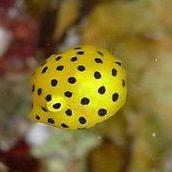-
Topics
-
Latest Update
-
0
WTS/T Radioactive BN
$20 per frag $15 for 2 frags $20 for 3 frags Sent from my iPhone using Tapatalk -
4
Decommissioning Sales of 5f Reef Tank
Hi, im interested in the trident and reef dose. Pmed u -
0
Wtt/ wts Easy corals
Wtt/wts 1-2 inch stable sps more than 1 month. Collection woodlands area All sps is stable for hi than I'm looking for Fiji pink pointed bird nest, true optics, red monti plate, forest fire, any other montis. No miles üpora. Green monti and grafted monti I have. 1. Tri-color birdnest (Yellow base) birdnest A/B- 15, C- 25, D/E- 20, 2. Tri-color birdnest (Yellow base) birdnest A/B- 18 3. Branching montipora F, J, I, -20 4. Tubbs Stella montipora. G- 20 5. Radioactive birdnest. H-15. (Got bigger colony size. If interested too) 6. Deep purple valida with neon polyps. G- 20. -
0
For sale: clowns, tangs, wrasse stripey
For sale fishes: Stripey (1.5inch)- $120 Bicolor cleaner wrasse- $15 Melanurus wrasse- $20 Saddleback clown pair- $30 Yellow scopas tang- $150 Zebra tang- $2500 Collection at kembangan. Pm or telegram me @caulifloweric to deal -
0
Wts grafted montipora
Grafted montipora - sgd 20 Loc 821209 punggol place 87510017 Pink sps 1 sgd 10 Pink sps 2 sgd 10
-









Recommended Posts
Join the conversation
You can post now and register later. If you have an account, sign in now to post with your account.